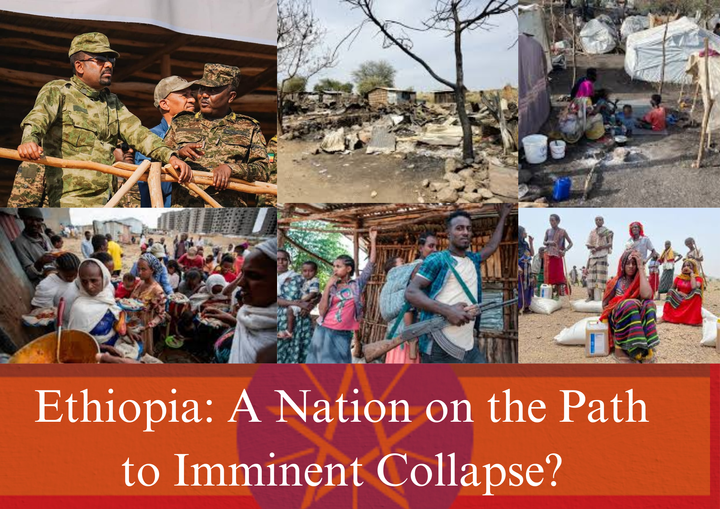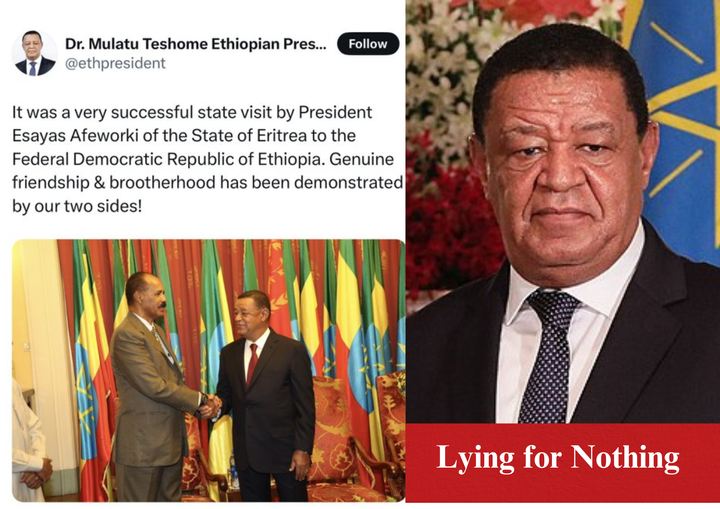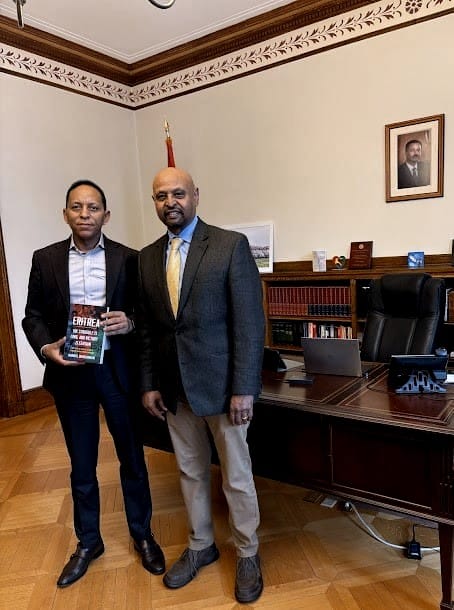Russia's Grand Strategy in the Horn of Africa and Red Sea Countries: A Nefasitpost.com Interview with Political Analyst Andrew Korybko
Russia’s grand strategy is to accelerate the global systemic transition to multipolarity. To this end, it seeks to strengthen its partners’ sovereignty since Moscow expects this will enable them to put their shared interests first instead of submitting zero-sum demands to third parties.

Nefasitpost interview with Russian analyst Andrew Korybko
NFP: Please tell us about Russia's grand strategy in the Horn of Africa and the Red Sea countries.
Russia’s grand strategy is to accelerate the global systemic transition to multipolarity. To this end, it seeks to strengthen its partners’ sovereignty since Moscow expects this will enable them to put their shared interests first instead of submitting zero-sum demands to third parties. This takes the form of diplomatically supporting those countries at the UN and exploring mutually beneficial economic and security cooperation wherever possible.
More bilateral cooperation decreases the chances that the US will successfully pressure these countries to distance themselves from Russia since they’d be unilaterally sacrificing their objective national interests. Moscow envisages entering into relationships of complex mutual interdependence that establish the basis for more comprehensive ties in the future, thus setting into motion a self-sustaining cycle that strengthens its partners’ sovereignty and thus accelerates multipolar processes.
It's important to point out that Russia doesn’t advance its relations with one country at the expense of another’s interests, which is why it successfully balances ties between pairs of countries like Ethiopia and Sudan, with a history of troubled bilateral ties. By multi-aligning between them in mutually beneficial ways that don’t threaten anyone’s interests, Russia helps counteract the US’ pernicious divide-and-rule plots by giving vulnerable states like Sudan a viable alternative to America.
Instead of remaining disproportionately dependent on the US and thus susceptible to its coercive demands to sacrifice its objective national interests to advance America’s hegemonic agenda. For example, Sudan can gradually restore some of its sovereignty and make more independent decisions. With time, this could sustainably stabilize the region by reducing the risk of interstate conflicts sparked by third parties’ meddling.
NFP: Do China and Russia strategically compete or cooperate in the region?
China and Russia are strategically aligned in the New Cold War over the direction of the global systemic transition, so much so that their joint efforts to accelerate the emerging Multipolar World Order have led to them forming what can be described as the Sino-Russo Entente. Each Great Power complements the other in that China focuses on the economic-financial dimension of multipolarity while Russia specializes more in the security-related one.
As regards the region, China’s Belt & Road Initiative (BRI) investments and especially the Djibouti-Addis Ababa Railroad (DAAR) play an integral role in creating mutually beneficial relationships of complex economic interdependence, thus reducing the chances of anyone unilaterally disrupting the status quo. Russia, for its part, provides military equipment and training to its partners to enhance their security capabilities so that they can more confidently counteract divide-and-rule Hybrid War threats.
The Sino-Russo Entente’s joint efforts contribute to advancing multipolar processes in the region. However, they’re not foolproof because the US occasionally exploits fault lines to drive wedges between and within certain countries. Ethiopia is presently recovering from the latest such plot. Still, it remains very vulnerable to information warfare-driven destabilization that takes advantage of interregional suspicions worsened during its latest war.
As mutually beneficial as the region’s multidimensional engagement with the Sino-Russo Entente is, those two are incapable of accelerating multipolar processes there by themselves since this requires the continued support of each country’s society. They must remain careful not to fall for the US’ information warfare-driven divide-and-rule plots lest prior successes risk suddenly being reversed if these efforts result in plunging their societies back into fratricidal conflict.
NFP: Do you believe that the West’s role has been replaced in the region, and if so, what can the US do to regain its influence?
The US-led West’s Golden Billion refers to that hegemon and its vassals in Western and Eastern Eurasia, which has seen its regional influence decline in recent years. Still, it’s premature to conclude that it doesn’t stand any chance of at least partially regaining some of its losses. This de facto New Cold War bloc still has close economic, political, and security ties with the region, and its countries continue providing large amounts of aid to its people.
It's, therefore, unrealistic to imagine that the Golden Billion won’t play any role in the region’s affairs in the future. Still, it might no longer be able to as effectively divide and rule them as before, nor take for granted its previously hegemonic influence over their governments. The region has strengthened its sovereignty and succeeded in stabilizing its affairs. However, some fault lines remain while other new ones could erupt, both at risk of being exploited via information warfare.
The best-case scenario is that the Golden Billion gradually recalibrates its approach to the region by abandoning its hegemonic policies to engage with those countries as equals with the respect they deserve. For that to happen, however, Western decision-makers must realize how counterproductive their present policies have been in pushing the region closer to the Sino-Russo Entente.
Everyone would benefit from friendly, gentle, and non-hostile competition between the Golden Billion and the Sino-Russo Entente, which could enable the region to get the best deals in all respects by bargaining between those two de facto New Cold War blocs. Unfortunately, that dynamic is unlikely to unfold since the first continues perceiving its rivalry with the second in a zero-sum way, which influences it to continue destabilizing the region via divide-and-rule plots.
NFP: Recent developments show that Russia has made gradual but successful inroads in the Red Sea and Horn countries. Now that Eritrea and Saudi Arabia are firmly aligned with the Russian Federation, how will it impact the West and the US's role?
Eritrea was working to accelerate multipolar processes far earlier than Russia since the latter sought to carve out a niche in the Unipolar World Order that emerged after the USSR’s dissolution until President Putin came to office and eventually ordered his country’s grand strategic recalibration. That being the case, it’s more accurate to say that Russia has finally aligned itself with Eritrea’s multipolar vision than the inverse.
Saudi Arabia still officially retains close ties with the US, but those relations have become much more complicated under the Biden Administration. Under Crown Prince and first-ever Prime Minister Mohammed Bin Salman’s leadership, the Kingdom decided to chart an independent path for itself in International Relations, which can be described as a multipolar one aligned with the Sino-Russo Entente’s vision and their partners across the Global South like Eritrea’s.
The present state of affairs across the world is that the Golden Billion’s unipolar hegemony is weakening in the face of a growing number of countries cooperating to accelerate multipolar processes, which they expect will make International Relations more democratic, equal, and just. Eritrea plays an important role in regional affairs, especially after its game-changing rapprochement with Ethiopia. In contrast, Saudi Arabia could play a role in reforming the global economic-financial system.
Its Chinese-mediated rapprochement with Iran could lead to those three and their shared Russian partner ditching the petrodollar in favor of the so-called “petroyuan,” or at least having those energy superpowers sell their resources in national currencies. Without Saudi Arabia’s participation in this scenario, it would be tough to accelerate financial multipolarity processes, the success of which would speed up the US’ unipolar decline. This thus bestows the Kingdom with outsized global influence.
Thank You, Andrew Korybko, for your analysis and insight.
Amanuel Biedemariam




Comments ()